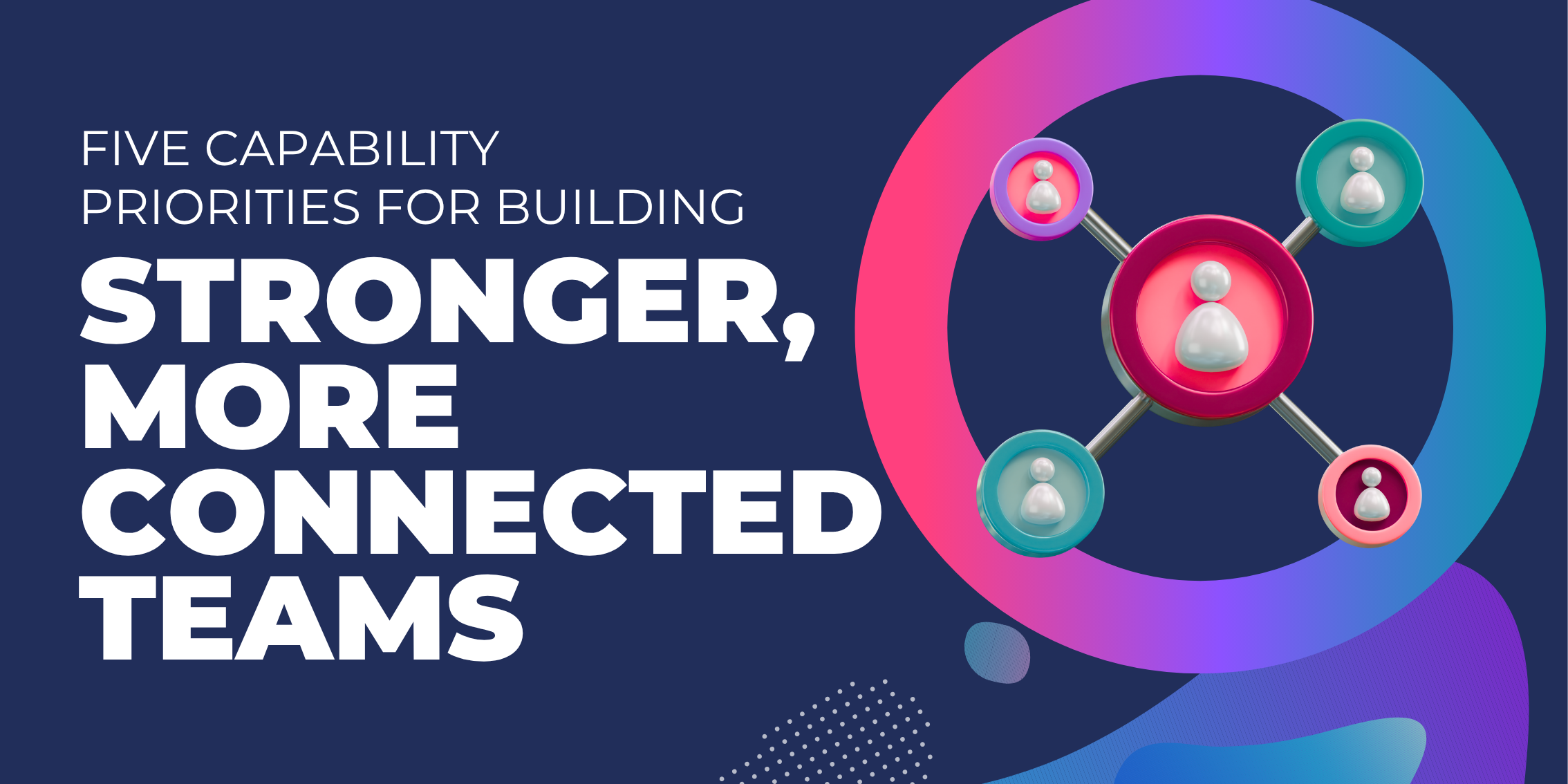
Five Capability Priorities for Building Stronger, More Connected Teams in FY25/26
By Julia Palmer
As we enter a new financial year, forward-thinking organisations are asking a powerful question:
How do we strengthen the human connections that drive performance?
While technical expertise is essential, it’s no longer the full story. The real advantage lies in relational capability—how people connect, collaborate, and communicate. These human skills—emotional intelligence, social polish, and presence—can and should be learned.
At Relatus, we call this the human advantage. It’s not just a mindset, it’s a measurable skill set that underpins performance and retention in today’s fast-moving workplaces.
In fact, the World Economic Forum’s 2025 ‘Future of Jobs’ Report identified social influence (which rises each year up the ladder), self-awareness and empathy as three of the top 10 skills most in demand, underscoring the need for L&D leaders to invest in relational capability now.
Here are five critical ways to embed these capabilities into your L&D strategy in FY25/26:
1. In-Person Interactions Spark Better Engagement
Digital tools connect us, but they don’t always create connection. In-person experiences help people tune in to others, reading cues, showing empathy, and being truly present. These interactions build trust faster and unlock deeper collaboration. Encourage opportunities for your people to practise their social intelligence through networking events, mentoring, and peer exchanges.
2. Learning is Supercharged Through Relationships
Capability doesn’t develop in isolation. People learn best when they’re connected to others, swapping stories, solving problems, and gaining perspective. Help your teams access learning ecosystems by building structured pathways for connection, including alumni networks, knowledge hubs, and cross-team forums.
3. Human Skills Are Core Business Skills
Emotional intelligence, curiosity, and communication are no longer “nice to have”. They’re critical. These relational skills shape the way people lead, influence, and collaborate. Embedding them into leadership development and performance frameworks ensures that your people are equipped for the modern workplace.
4. Strategic Networking Can—and Should—Be Taught
Strong networks don’t just happen. People need support to understand how to grow, manage, and activate their relationships with purpose. From mapping connections to setting relational goals, networking is a capability that can be trained and coached, not left to chance.
5. Ecosystems Survive the Odds. Networks Alone Don’t.
Teams with strong internal and external relationships are more resilient, more innovative, and more engaged. When your people feel supported and connected, they’re more likely to stay, and more motivated to contribute. Building relationship ecosystems gives your organisation the structure it needs to adapt and thrive, even in uncertain times.
The bottom line? Relational capability is a strategic asset.
As you plan for FY26, think beyond technical upskilling. The real advantage lies in developing the human skills and networks that support long-term growth for individuals, teams, and your whole organisation.
About the Author: Julia Palmer
 Julia Palmer is a leading Relational Strategist and CEO of Relatus, renowned for designing relationship ecosystems that transform business outcomes. With over 20 years' experience, she helps individuals and organisations move beyond networking to build authentic, sustainable relationship capital rooted in emotional intelligence and human connection. To learn more visit www.relatus.com.au and www.juliapalmer.com
Julia Palmer is a leading Relational Strategist and CEO of Relatus, renowned for designing relationship ecosystems that transform business outcomes. With over 20 years' experience, she helps individuals and organisations move beyond networking to build authentic, sustainable relationship capital rooted in emotional intelligence and human connection. To learn more visit www.relatus.com.au and www.juliapalmer.com

